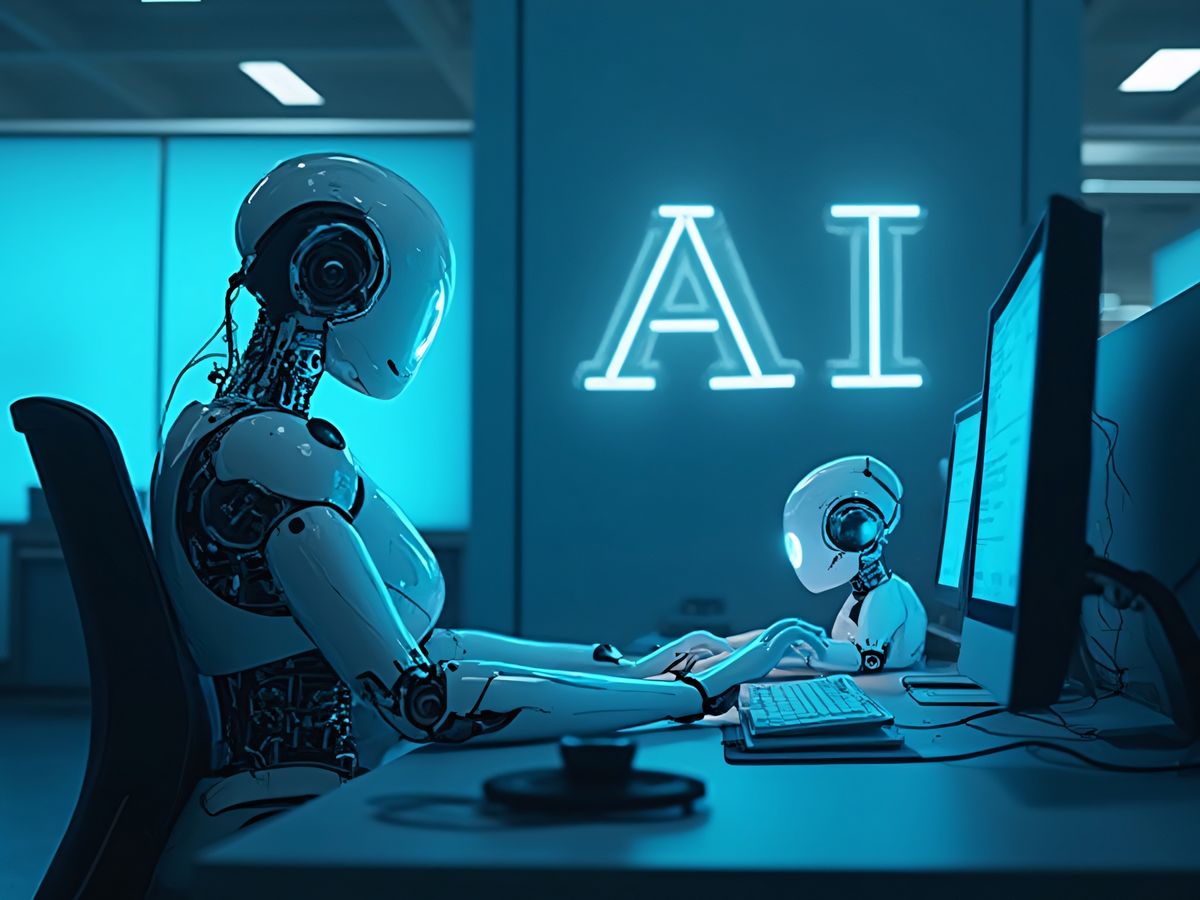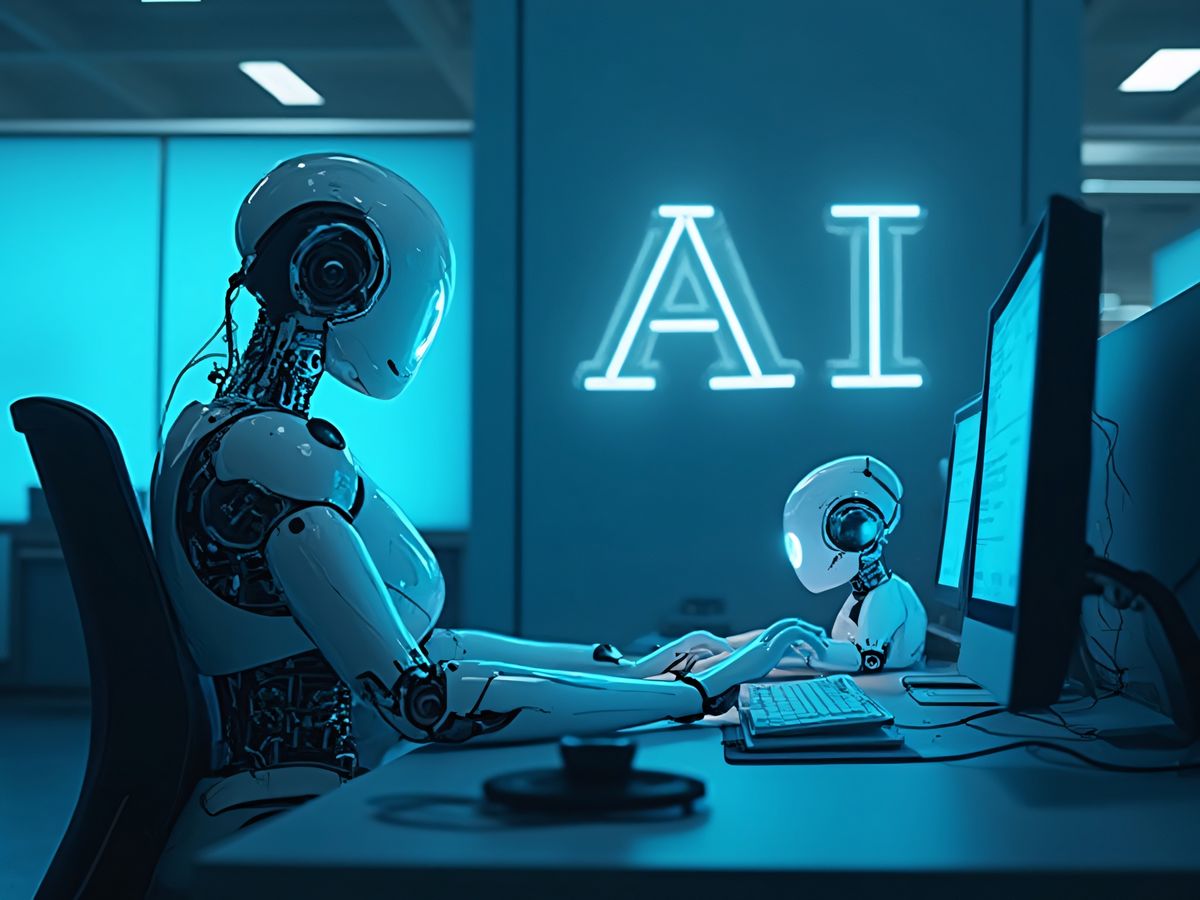
Agentic AI is the tech world’s latest obsession.
Now that we’ve gotten the hang of generative AI, we’re witnessing a rapid evolution of AI tools that can operate autonomously and take actions on behalf of users. As this tech grows in popularity at the consumer level, many business leaders are still hesitant to implement it. A recent survey by Prosper Insights & Analytics revealed that while 43.3% of respondents are leveraging AI to generate summaries or help them with research, less than a quarter (23.2%) are using it to execute work tasks.
What’s holding businesses back from using agentic AI to its full potential? As with any new tech innovation, there are a fair amount of misconceptions to sort through. For businesses to stay competitive and avoid leaving money on the table they must be able to confront these myths – and fears – head on.
Co-founder and CEO of Vidyard.
Myth #1: Agentic AI is a rogue, uncontrollable technology destined to overthrow humanity.
In other words, the Skynet fear. And don’t get me wrong, AI is absolutely able to execute many tasks as well as (or sometimes better than) their human users. But let me be perfectly clear: it’s very difficult to build robots that can entirely replace human labor or ingenuity. In fact, agentic solutions work best when they’re used for the routine, rather than the creative or intrinsically human.
As an example, my wife and I have a household GPT called “Littknows.” It has all of our medical and insurance cards, our owner documents, our vendor information, and so on. When we first started using it, we asked it to field questions like “When does our car insurance policy renew?” or “What will my co-pay be at the dentist today?”
But more recently, we’ve started using it to take things off our plate. Littknows helps us make doctors’ appointments and book travel – it’s like having a household manager who can pick up our slack and keep us organized. This is a prime example of agentic AI helping us do more, better, and faster.
Myth #2: Agentic AI will replace knowledge workers, triggering a mass unemployment crisis
The fear that AI will replace human workers is perhaps the biggest detractor from widespread adoption, but this isn’t the first time innovation has led to concerns like these.
Think back to the invention of Microsoft Excel. When the pen-and-paper processes of the past were suddenly streamlined, bookkeepers were scared. They thought it was only a matter of time before they were eliminated completely by a faster, more efficient solution.
And, truthfully, the amount of bookkeepers did decline.
But then we saw an explosion of new roles. For example, having access to easily manipulatable data birthed Financial Planning and Analysis – an entirely new career path. People who started their careers in bookkeeping were able to upskill and find opportunities to be compensated three times as much. This technology made them more effective at their jobs, allowed them to improve their skill sets, and advance their careers in ways that weren’t available to them before.
We’re going to see a similar trajectory with agentic AI. The reduction of entry-level, admin-heavy jobs like sales and business development reps will usher in new, higher-impact roles better suited for humans and our unique abilities.
Myth #3: Agentic AI is a luxury for tech giants with a lot of cash
Adopting agentic AI doesn’t necessarily mean net new investments in prohibitively expensive tools. Many SaaS providers are working to incorporate agentic solutions into their existing products, which means the tech your company already invests in may soon offer powerful and intelligent capabilities.
Furthermore, agentic AI is becoming more accessible by the day. But say your business really doesn’t have the extra budget to put toward agentic tools. It could be the case that you’re looking for dollars in the wrong place.
Consider Klarna as an example. When employees leave Klarna due to natural attrition, the company doesn’t immediately backfill their roles. Instead, teams assess if they can automate a part – if not all – of the job. If so, the role is eliminated and a portion of the headcount savings are redistributed to increase the pace at which employee salaries grow.
As a smaller company, you can’t be expected to outhire your larger competitors. But you can and should be finding leverage with AI tools to make your smaller team that much more efficient. It’s not a matter of spending more, it’s a matter of being more efficient with the resources you already have. Just look at companies like ElevenLabs – which went from zero to $100M ARR in two years with just 50 people, all because they prioritized AI capabilities. The right investment is a game changer for driving growth.
Myth #4: Agentic AI is inherently unethical and biased, posing serious risks to fairness and accountability
Ethical utilization should be a priority whenever you’re implementing new technology. The reality: garbage in equals garbage out. If the data used to train an AI model is biased then you can expect to see those same biases reflected in the model’s outputs.
Now, this doesn’t automatically spell trouble for businesses adopting agentic solutions. Unlike generative AI which can potentially produce biased text or images as a result of biased training data, agentic systems don’t have a creative output. They aren’t generating net new content, only making decisions and taking actions based on existing data. This doesn’t completely eliminate the risk of bias – it’s still critical to do your due diligence when selecting AI tools to ensure you know exactly how data will be applied – but it does greatly shrink the realm of possibility.
Myth #5: Agentic AI is just a passing fad with no measurable ROI
There’s an economic principle called Jevons Paradox that suggests when technological advancements make a resource more efficient to use, it leads to increased consumption of that resource. The paradox was originally proposed in the wake of efficiency improvements in steam engines: when coal-burning steam engines witnessed a massive technology unlock, they rapidly became 10x more efficient.
We can apply this same paradox to conversations around AI productivity. As more and more businesses unlock the power of AI-driven efficiencies, demand for AI-powered tools will increase in direct response to their wide availability and usefulness. Agentic solutions for salespeople, for example, provide immense and indisputable ROI when it comes to improving pipeline velocity and sales effectiveness. As these tools prove their competitive advantage, more sales teams will reach for them until we eventually reach a point where they’re an integral part of every sales team’s revenue stack.
Choosing the right agentic solution for your business in 2025
While agentic AI is quickly becoming a must-have rather than a nice-to-have, it’s critical to note that not all solutions are created equal. If your company is ready to embrace this latest AI innovation , here are a few tips for selecting the right agent:
Know your goals: What are you trying to achieve with this new tech? Evaluate different providers and how their capabilities map to your objectives.
Look at your tech stack: Odds are, the tools you already invest in are adding agentic features into their existing product. Dig into whether these improvements are on their roadmap. If not, make sure the solution you do invest in integrates with your current stack.
Stay on top of it: Watch product demos, talk with your teams, and test out different agentic products to see how they stack up against one another. With so many businesses investing in building AI-powered tech, it’s inevitable that new solutions emerge and existing ones greatly improve. If you evaluated a solution last quarter and it wasn’t up to par, consider taking another look and seeing what’s new.
The agentic AI revolution is already upon us. No matter your industry, goals, or the size of your business, now is the time to embrace agentic solutions, or risk getting left behind.
We list the best AI chatbot for business.
This article was produced as part of TechRadarPro’s Expert Insights channel where we feature the best and brightest minds in the technology industry today. The views expressed here are those of the author and are not necessarily those of TechRadarPro or Future plc. If you are interested in contributing find out more here: https://www.techradar.com/news/submit-your-story-to-techradar-pro
Services Marketplace – Listings, Bookings & Reviews
